As you know, internet connectivity is one of the most critical needs any business has today. We discussed in a previous blog how to look at your business in-depth so you can get a better idea of your internet needs. Once you’ve done this, you will be ready to look at some of the possibilities for internet access and choose the best one. We’ve put together some of the pros and cons of the main options—to make the decision easier for you.
Fiber Internet

Fiber internet works by carrying information by way of sending pulses of light through an optical fiber.
Fiber internet works by carrying information by way of sending pulses of light through an optical fiber. Fiber is considered by many to be the backbone of the global internet. It can carry data at very high speeds over long distances.
Pros of Fiber Internet
• Fiber offers faster, more reliable service—this means less signal loss and increased download/upload speeds.
• Fiber internet is not subject to electrical or environmental interference.
• Fiber is more secure and difficult to intercept than many other internet service types.
• Many customers find that fiber internet is becoming more available, especially throughout Canada.
• Fiber is future proof. Because the rate of connection is limited to the terminal, there can be speed improvements through equipment upgrades.
Cons of Fiber Internet
• Internet service by fiber isn’t available everywhere yet and installation times may take longer than other services.
• The system itself is relatively delicate, especially when computers are connected directly to the unit. This fragility makes it susceptible to physical damage.
• The cost for fiber can be prohibitive in the short term. The cost of installation, repair, upgrades and monthly service may be more expensive than other types of service.
Things to Keep in Mind Regarding Fiber
• There are two types of fiber—FTTN (Fiber to the Node) and FTTP (Fiber to the Premises). Fiber to the node means that the area is connected via fiber and then connected to each home or business with copper. With Fiber to the premises, fiber is used all the way to the site.
• To estimate how fast your service will be, it is important to understand what type of service you are getting and how close the node will be.
Cable Internet

Cable internet relies on the same infrastructure that cable television does, meaning a coaxial cable network.
Cable internet relies on the same infrastructure that cable television does, meaning a coaxial cable network.
Pros of Cable Internet
• Cable internet is fast and very reliable—often more so than DSL, wireless or satellite.
• Cable is accessible in almost all areas, because of already existing cable television infrastructure.
• Customers do not need to use a phone line to use cable internet.
• Because the infrastructure is already there and there are many competitors on the scene, cable internet is usually very affordable.
Cons of Cable Internet
• While fast, speeds are not as fast as fiber connections.
• Because connections are sometimes shared, and many users are often on the same network, sometimes there are latency issues. Additionally, some networks throttle speed during peak periods.
• Although outside infrastructure may be in place, there can sometimes be a cost involved with in-home or office installation
What You Need to Know About Cable Internet
• Cable internet is often used by businesses as a backup connection—due to the affordability and reliability.
• It is vital that a company knows what infrastructure is in place before deciding if cable is a good idea or not.
DSL Internet

DSL internet relies on the infrastructure of telephone lines.
DSL internet relies on the infrastructure of telephone lines. It is one of the older types of high-speed internet, but still very prevalent in many areas.
Pros of DSL
• DSL utilizes a dedicated line; this means that your speed is consistent since it is only yours.
• Since DSL uses existing infrastructure, it is available in almost all areas.
• DSL is affordable since there are usually many competitors offering differing packages and rate plans.
• Because most buildings are already wired for phone lines, installation fees are usually lower.
Cons of DSL
• DSL isn’t as fast as a fiber connection.
• DSL requires an active phone line or there are additional costs involved.
• The quality of the DSL speed can vary from location to location.
Things to Keep in Mind About DSL
• Because there is a reliance on already-existing infrastructure, it is important to know what is already installed.
• Find out what speed your business or home would qualify for, to avoid disappointment.
Wireless Internet

Wireless internet is received through waves that come from radio towers.
Wireless internet is received through waves that come from radio towers. The exact method of connectivity can vary from location to location.
Pros of Wireless Internet
• Wireless internet service is accessible anywhere that is within connectivity of radio towers by mobile devices.
• Wireless internet is a good option to allow access to internet by visitors, customers or employees as it doesn’t require physically plugging into a system.
• Even rural areas that do not have access to fiber or another high-speed internet service may sometimes have connectivity with wireless internet.
Cons of Wireless Internet
• When more users are on the network, the bandwidth decreases making for a slower experience.
• The overall speed is slower than with wired connections.
• There can be security concerns involved with wireless internet.
• The range of access is limited to those areas accessible by radio tower connection. This can be a problem in mountainous regions especially.
Need to Know Info Regarding Wireless Internet
• Wireless is often a good choice for a backup internet and can be particularly useful in certain special situations, such as offering internet to visitors.
As you can see, different solutions offer different pros and cons, including speed reliability and cost. Additionally, some services may not be available in all areas—or even in different buildings within the same city. Having all of the facts about different types of internet connectivity can make your choice just a little bit easier—especially when you pair this info with your needs for speed, reliability, and cost. Just remember, every business is different. Therefore, the service that is perfect for your competitor or the office across the hall may NOT be what’s right for you. Do your homework and find the solution that will serve you best today and in the future too.




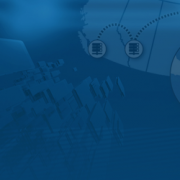
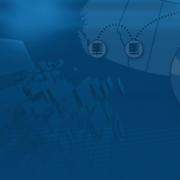
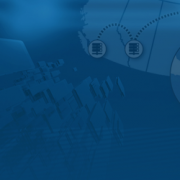
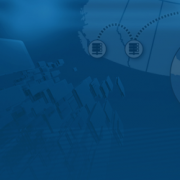

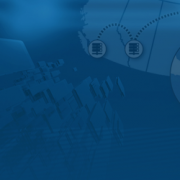





Leave a Reply
Want to join the discussion?Feel free to contribute!